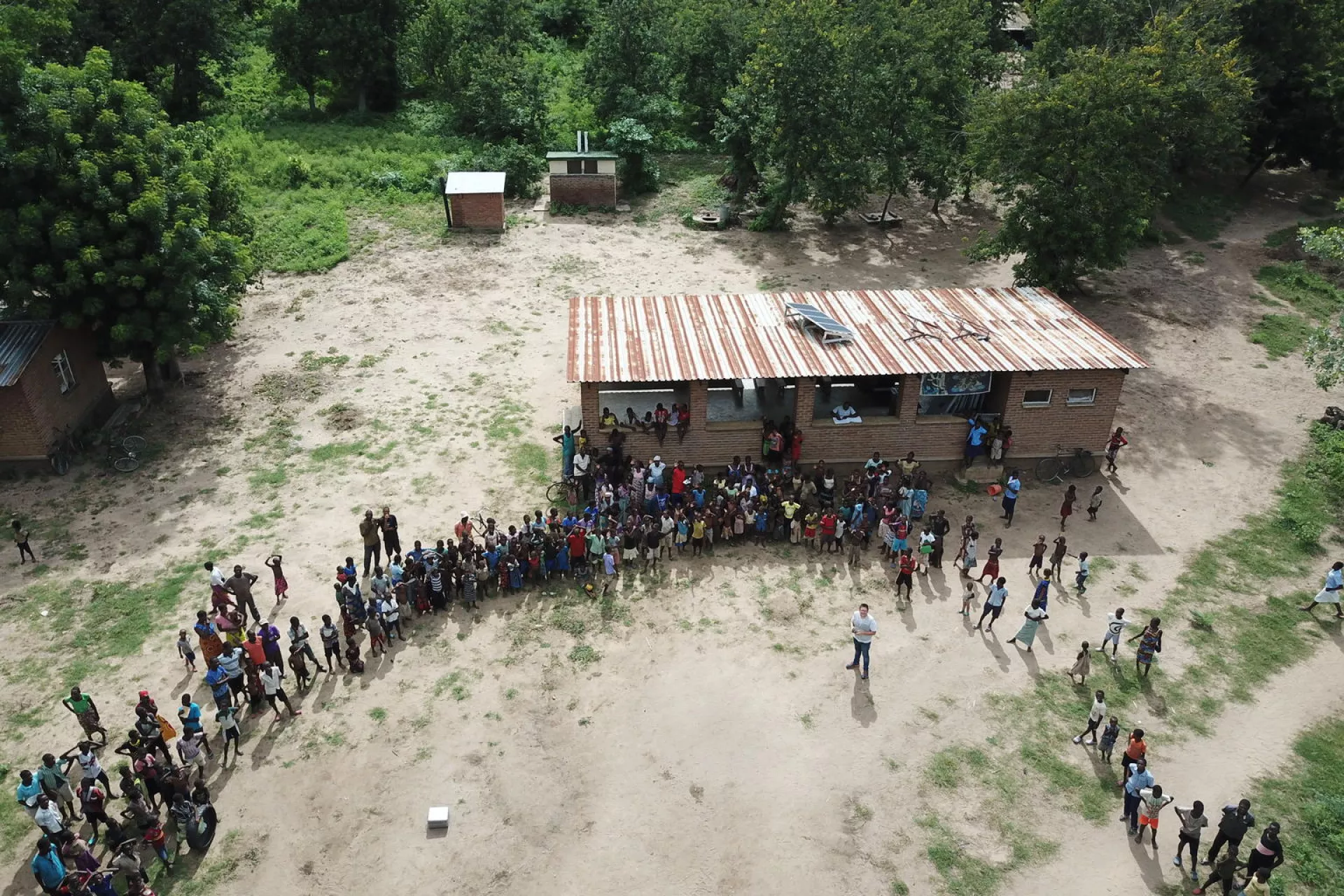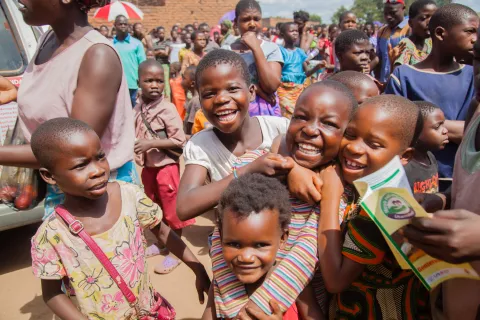Six Drone Startups Graduate from UNICEF's Innovation Fund
UNICEF Innovation onboarded companies accelerating the development of digital public goods in the drone technology sector

In December 2019 the UNICEF Innovation Fund onboarded six drone companies located in UNICEF programme countries; these investments are part of UNICEF’s larger drones programme exploring the use of the technology for a range of applications, including humanitarian supply chain systems and delivery, improved connectivity in hard-to-reach communities, and aerial imaging for better preparedness and response in emergencies.
Bioverse Labs(Brazil), Cloudline Africa (South Africa), Dronfies Labs (Uruguay), Prokura Innovations (Nepal), qAira (Peru), and Rentadrone (Chile) received non-equity seed funding and technical assistance over the course of the investment period.
Here are the companies' main achievements, impact, and growth over the course of the investment period:
Bioverse Labs (Brazil) uses drone imagery and machine learning to identify and map non-timber species of trees that are economically viable for supporting traditional modes of income generation for indigenous populations, thereby contributing to the sustainability of the Amazonian ecosystem.
- The target area for the pilot was 400 Sq kilometers and the community identified 680 trees during the baseline GPS-powered survey. Through Bioverse’s work with UNICEF Innovation Fund, Bioverse have successfully identified 9,240 additional trees.
- Achieved 97% accuracy on machine learning models for detection of Brazil Nut Tree
- Creation of an open source software development pipeline to assist scientific communities to accelerate the use of machine learning for forest mapping.
Read more about Bioverse Labs' investment journey here.
Cloudline Africa (South Africa) operates small-scale autonomous airships that have longer endurance and range than current commercial drones; their solution will help deliver medical supplies to hard-to-reach communities and reduce operational costs in the last-mile.
- The team launched the airship with a payload capacity of 10 kgs with a 50 km range.
- Full endurance capability (40km/h) along with automated waypoint flying.
- Contributed flight control software to the PX4 upstream community by introducing a new mode of aircraft to the community in the form of airships.
- Cloudline received the Fast Company South Africa Most Innovative Company Award
Read more about Cloudline’s investment journey here.
Dronfies Labs (Uruguay) Developed an Unmanned Traffic Management (UTM) that supports real time data sharing for airspace management and multiple drone operations coordination. In the case of emergencies the UTM allows search and rescue teams to perform efficient searches and collect accurate flight data without expert knowledge in drone use needed.
- UTM solution designed complies with NASA/FAA standards, thereby increasing scalability of the UTM and introduction to new contexts and geographies.
- Uruguayan Civil Aviation Authority incorporating Dronfies’ open-source UTM in the regulatory framework in the coordination of drones in the country
- Over 3000 flights have been coordinated by Dronfies’ UTM.
Read more about Dronfies Labs’ investment journey here.
Prokura Innovations (Nepal) is developing a locally produced and low-cost drone system to tackle last-mile delivery of medicines, connecting underserved health posts to a surrounding equipped health facility.
- Fabrication of Vertical Take-off and Landing (vtol) drone completed
- 1.5 kg payload capacity with a 60km range
- Released final versions of a drone monitoring system and inventory management app.
Read more about Prokura’s investment journey here.
qAIRa (Peru) is developing a drone to monitor air quality, as well as developing algorithms to translate data acquired by sensors mounted in drones to visualize air quality parameters for environmental protection.
- open source version of qAIRamap software for air quality information available.
- Mapped 600 hectares using drones, monitoring air quality across 4 cities in Peru.
- A web application has been deployed where users can see the air quality data in real time from seven locations in Lima.
- Conducted evaluation on the quality of air in the context of Covid-19 in partnership with the government of Lima City leading to recommendations for policy on clean energy alternatives.
Read more about qAIRa’s investment journey here.
Rentadrone (Chile) is developing solutions using machine learning, thermal and multispectral imagery to both automatically detect diseases on crops and detect and classify and organize the errors and damaged modules in Solar Power Plants, which will improve energy efficiency and the performance of sustainable energy sources.
- Rentadrone assessed 230,000 solar panels and found faults in 7150 panels increasing the efficiency of clean energy alternatives.
- For the agricultural use case Rentadrone mapped 178 hectares of agricultural land generating maps for their relevant clients
- Contributed open source software of Fault Detection for Photovoltaic Solar Panels as well as algorithms developed with the aim of determining health states of different types of crops
Read more about Rentadrone’s investment journey here.
About the UNICEF Innovation Fund
UNICEF’s Innovation Fund invests in early stage, open-source, emerging technology digital public goods with the potential to impact children on a global scale. It also provides product and technology assistance, support with business growth, access to a network of experts and partners to allow for scale and growth. Our ambition is to build successful digital solutions into Global Digital Public Goods, to ensure fair, equitable, and open access to these unique and new tools for human development on a global scale.
The UNICEF Innovation Fund is the first financial vehicle of its kind in the United Nations and enables UNICEF to learn from and to shape markets of emerging technology that exist at the intersection of $100 billion business markets and 1 billion persons’ needs.
Learn more by visiting https://www.unicefinnovationfund.org.




